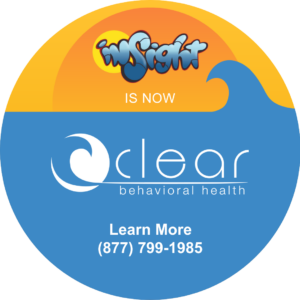Psychosis is a mental health symptom which is characterized by a disconnection from reality. A common symptom of schizophrenia, people experiencing psychosis or a psychotic episode can display distorted thinking patterns and disruptions in awareness, including hallucinations (seeing or hearing things that aren’t really there) and delusions (strongly held false beliefs about themselves, their experience, or the world around them). These symptoms can be very distressing and often make it difficult for individuals to distinguish between what is real and what is not, making it difficult to function in their daily lives.
Drug-induced psychosis refers to a condition in which a person experiences symptoms similar to those of psychosis (such as hallucinations, delusions, and impaired thinking) due to the use of drugs or other substances. The risk of developing drug-induced psychosis can depend on various factors, including the type of drug used, the dosage, the individual’s susceptibility to psychosis, and their mental health history.
Struggling with mental illness, drug abuse, or both (known as co-occurring disorders) can be difficult, but help is available. In this article, Clear Behavioral Health will explore the nuances of drug-induced psychosis and the treatment considerations at play, giving you a better understanding of this condition and investigating its causes, effects, and potential impacts on your functioning and outlook.
What is Drug-Induced Psychosis?
Drug-induced psychosis is a mental health disorder triggered by the use of substances. It can lead to hallucinations, delusions, incoherent speech, and impaired judgment, making it difficult for affected individuals to distinguish between reality and their altered perceptions.
This condition can pose immediate risks to the affected person and create significant challenges in their ability to function, interact with others, and maintain a coherent sense of self. Seeking timely and appropriate intervention is important to help individuals experiencing drug-induced psychosis or a severe psychotic episode regain their hold on reality and safely recover.
What Causes It?
According to one study, the occurrence of drug-induced psychosis is related to several mechanisms of usage:
- Higher levels of dopamine being produced after drug use, especially for hallucinogens, psychedelic substances, and stimulants
- A substance functioning as a cannabinoid receptor agonist for cannabis-related substance usage
- Antagonist activity at NMDA receptor sites for ketamine and methoxetamine usage
- K-opioid receptor activation when using substances such as salvia
Additionally, individuals with a history of mental health issues can also be more susceptible to drug-induced psychosis. Substance abuse can exacerbate underlying mental illnesses such as depression, anxiety, psychotic disorders, or bipolar disorder, increasing the risk of developing psychosis after drug use.
How Common Is It?
While it’s difficult to pinpoint an exact figure, owing to several variables at play, a study in 2008 noted that the risk of acute or transient psychotic symptoms increased for participants who abused or displayed dependence on cocaine (meeting diagnostic criteria) as compared to those who used cocaine with no substance use diagnosis. A similar pattern was evident for cannabis, opiates, and amphetamines.
Additionally, several studies and analyses have concluded that drug-induced psychosis is a relatively common clinical phenomenon, particularly with the growing onset of new (synthetic marijuana) and increased usage throughout the world.
What Are the Symptoms of a Drug-Induced Psychosis?
Common drug-induced psychosis symptoms can include:
- Hallucinations (seeing, hearing, or feeling things that aren’t real)
- Delusions (strongly held false beliefs)
- Confused thinking
- Disorganized speech and behavior
- Paranoia
- Agitation
- Aggression
Is Drug-Induced Psychosis An Official Diagnosis?
According to the Diagnostic and Statistical Manual, Fifth Edition (DSM-5), the criteria for Medication or Substance-Induced Psychotic Disorder are as follows:
- The presence of delusions, hallucinations, or both
- Evidence (via reports, a physical examination, or laboratory findings) that the presence of delusions, hallucinations, or both developed either during or soon thereafter using a substance and that the substance is capable of producing such effects
- The disturbance isn’t better explained by the presence of other psychiatric disorders (such as schizophrenia), previous psychotic episodes, or other risk factors
- The disturbance doesn’t occur exclusively within the context of delirium or another health/underlying mental health condition
- Such a disturbance causes clinically significant distress across several important aspects of overall functioning
Which Substances Can Cause Substance-Induced Psychosis?
There are several substances that can cause drug-induced psychosis:
- Hallucinogenic substances (such as LSD or magic mushrooms)
- Stimulants (such as methamphetamine or cocaine)
- Cannabis (particularly in high doses or when used by someone with a predisposition to psychosis)
- Certain prescription medications (such as antidepressants, antipsychotics, or steroids)
Drug-Induced Psychosis Treatment
It’s essential for individuals experiencing drug-induced psychosis to seek help from mental health professionals as soon as they can. Early intervention and a comprehensive, individualized treatment plan tailored to the person’s specific needs are key to managing symptoms, preventing relapse, and promoting long-term recovery. The involvement of a supportive network, including family and friends, can also significantly enhance the effectiveness of the treatment process.
Hospitalization and Withdrawal Management
Addressing psychosis and drug-induced psychotic disorder involves a multifaceted approach, tailored to you or your loved one’s individual needs. Medical interventions, including hospitalization for severe cases and supervised withdrawal management services, are sometimes essential for ongoing stabilization and safety. Withdrawal management allows for professionals to monitor you 24/7 to ensure a safe and comfortable withdrawal process from substance use, along with addressing any complications that may arise. Withdrawal management can also lay the foundation for further treatment by creating a stable physical baseline, including being assessed for other mental or physical health concerns and exploring the possibility of medications.
Inpatient and Outpatient Treatment
Inpatient treatment programs can offer a secure environment for comprehensive care, addressing both the psychological and physical aspects of drug addiction and underlying mental health issues. During this period individuals receive specialized therapy and support, enabling them to navigate the challenges associated with drug-induced psychosis and building a new recovery process to continue into the future. Partial Hospitalization (PHP), Intensive Outpatient (IOP), and outpatient services can also provide different levels of structured treatment while also allowing individuals to maintain a connection with their daily lives, depending on the level of care they require.
Moreover, continued support and engagement are vital for sustained recovery after the initial phase of treatment is complete. Ongoing therapy, peer support, and support groups work to ensure a continuum of care, promoting stability and enhancing the overall well-being of individuals in their recovery journey.
Get Help and Support For Addiction-Related Concerns
Recovery from drug-induced psychosis is possible with the right treatment and support. Quality treatment centers offer structured programs tailored to individuals’ needs, providing a safe and secure environment for healing where individuals can rebuild their lives, develop resilience, and regain control over their mental health.
Clear Behavioral Health provides a comprehensive substance abuse treatment program—with mental health services—customized to address your unique challenges, setting the stage for a successful transition into a substance-free life. Beyond the initial phase of treatment, we also offer various levels of care and post-treatment engagement opportunities, each designed to enhance your chances of long-term success. Reach out to us today to begin exploring all the personalized recovery options that are best suited to your needs.
References
- Bentham Science Publishers. (n.d.). Substance-Induced Psychoses: A Critical review of the literature: Ingenta Connect. https://www.ingentaconnect.com/content/ben/cdar/2011/00000004/00000004/art00004
- Degenhardt, L., Coffey, C., Hearps, S., Kinner, S. A., Borschmann, R., Moran, P., & Patton, G. C. (2015). Associations between psychotic symptoms and substance use in young offenders. Drug and Alcohol Review, 34(6), 673–682. https://doi.org/10.1111/dar.12280
- Smith, M. J., Thirthalli, J., Abdallah, A. B., Murray, R. M., & Cottler, L. B. (2009). Prevalence of psychotic symptoms in substance users: a comparison across substances. Comprehensive Psychiatry, 50(3), 245–250. https://doi.org/10.1016/j.comppsych.2008.07.009
- Substance Abuse and Mental Health Services Administration (US). (n.d.). Table 3.20, DSM-IV to DSM-5 Psychotic Disorders – Impact of the DSM-IV to DSM-5 changes on the National Survey on Drug Use and Health – NCBI Bookshelf. https://www.ncbi.nlm.nih.gov/books/NBK519704/table/ch3.t20/
- Understanding psychosis. (n.d.). National Institute of Mental Health (NIMH). https://www.nimh.nih.gov/health/publications/understanding-psychosis.
- Vassos, E. (2023). What is the Link Between Substance-Induced Psychosis and Primary Psychotic Disorders? American Journal of Psychiatry, 180(6), 404–406. https://doi.org/10.1176/appi.ajp.20230298
- Fiorentini, A., Cantù, F., Crisanti, C., Cereda, G., Oldani, L., & Brambilla, P. (2021, December 23). Substance-induced psychoses: An updated literature review. Frontiers in psychiatry. https://www.ncbi.nlm.nih.gov/pmc/articles/PMC8732862/#B2

